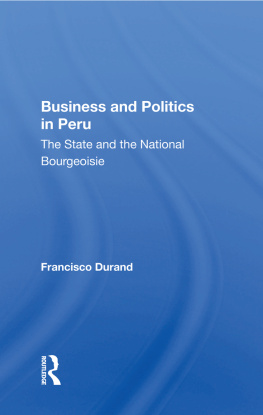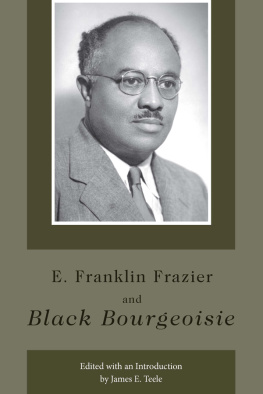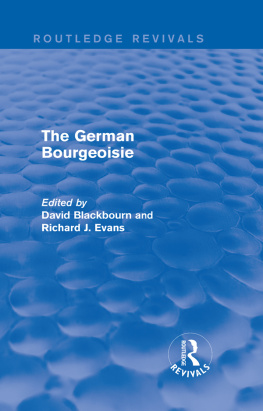First published 1994 by Westview Press, Inc.
Published 2020 by Routledge
52 Vanderbilt Avenue, New York, NY 10017
2 Park Square, Milton Park, Abingdon, Oxon OX14 4RN
Routledge is an imprint of the Taylor & Francis Group, an informa business
Copyright 1994 by Taylor & Francis
All rights reserved. No part of this book may be reprinted or reproduced or utilised in any form or by any electronic, mechanical, or other means, now known or hereafter invented, including photocopying and recording, or in any information storage or retrieval system, without permission in writing from the publishers.
Notice:
Product or corporate names may be trademarks or registered trademarks, and are used only for identification and explanation without intent to infringe.
A CIP catalog record for this book is available from the Library of Congress.
ISBN 13:978-0-367-01090-4 (hbk)
ISBN 13: 978-0-367-16077-7 (pbk)
Several individuals and institutions have contributed to the completion of this book and deserve to be mentioned.
I would particularly like to express my appreciation to the Center for Latin American Studies at the University of California, Berkeley. The Center, with its interdisciplinary emphasis and fluid dialogue among students, professors and guest scholars, proved to be a stimulating and supportive environment. Financial support from the Ford Foundation gave me the opportunity to complete my research in Lima.
Three Berkeley scholars must be specially thanked. David Collier offered helpful and constant advice in terms of content and style and strongly stimulated my interest in comparative politics. Tulio Halperin provided me with a framework of historical analysis on Latin America as a whole which proved to be extremely helpful. Alejandro Saragoza contributed with his continuous support through years of intensive reading and research and helped me to understand the peculiarities and characteristics of the Mexican business community by sharing his knowledge of the famed Grupo Monterrey.
At the Pontificia Universidad Catlica del Per, many friends and colleagues supported and encouraged my research. First of all, I must mention Alberto Flores Galindo, a bright Peruvian scholar who fought bravely but unsuccessfully against cancer. I render tribute to this friend and colleague who struggled to continue working and thinking about Peru's deep social and political problems to the very last. Rolando Ames, Ins Garca, Luis Miguel Glave, Javier Iguiiz, Orlando Plaza, Gonzalo Portocarrero and Guillermo Rochabrum encouraged me to keep working and deepening my thoughts on the Peruvian labyrinth of power with their constructive criticism. At Centro de Estudios y Promocin del Desarrollo-DESCO, I would like to mention Carmen Rosa Balbi, Eduardo Balln, Raul Gonzles, Juan Larco, Henry Pease, Marcial Rubio and Abelardo Snchez Len for stimulating the study of the country's erratic arid surprising political changes. At Actualidad Econmica del Per, Humberto Campodnico and Alberto Grna enabled me to accurately follow economic policies and trends.
I am also grateful to many business leaders and high state officials (including three Ministers and three Vice Ministers) whom I interviewed for several hours with open questions on confidential matters. In several cases, their identity must remain anonymous due to the political sensitivity of the information provided. In our numerous in-depth conversations key opinions frequently had to remain off the record. One individual, an entrepreneur, can be mentioned. From our first meeting at a business conference in 1978, Edgardo Palza, for fifteen years manager of the Peruvian Institute of Business Administration and for a further three years manager of the Confederation of Private Entrepreneurs, became a reliable source of sound information and insightful analysis on the business sector and its often intricate and variable relations with the state.







